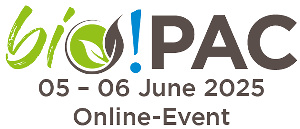One of SusChem’s first three visionary project concepts outlined in its initial Vision document in 2004 was the development of a fully integrated biorefinery. Now the BIOSKOH flagship research project, funded under the BioBased Industries Joint Undertaking (BBI JU) in Horizon 2020, will demonstrate a first of its kind commercial-scale second generation biorefinery in Europe. This sustainable, circular bioeconomy project will transform a brownfield industrial site in eastern Slovakia into a 55 kton cellulosic ethanol production facility.
To establish an advanced European bioeconomy and transit towards a sustainable future, Europe needs to boost the sustainable conversion of renewable biomass into biobased products, chemicals and energy. Currently, there are no true full-scale producers of second generation (2G) bioethanol in Europe. BIOSKOH aims to change this through research and innovation and specifically to pave the way for the largest 2G biorefinery in Europe with a 110 kton capacity.
Development Phases
The project has two development phases. Initially it will develop a flagship 55 kton 2G biorefinery to produce cellulosic ethanol for EU biofuel mandates. This should pave the way for second stage investment to scale up to a 110 kton facility that will be the largest in Europe.
BIOSKOH, full project title ‘Innovation Stepping Stones for a Novel European Second Generation Bioeconomy’, launched in October 2016 and includes eleven partners from seven EU member states in its consortium. The project members represent the full bioeconomy value chain including land owners, feedstock producers, supply chain experts, agronomical researchers, leading biotechnology companies, innovative technology providers, and plant constructors and operators.
BIOSKOH’s core project aims are to:
- Establish a first of a kind biorefinery flagship for Europe in terms of size and innovation potential
- Demonstrate a full regional biobased value chain, helping farmers to diversify business and create new opportunities including the exploitation of currently under-used resources by introducing farmers to innovative ways to use biomass
- Improve regional infrastructure including substantial storage and shipment facilities for agricultural products
- Support cross-industry collaboration between the agro-industry, bio-based, chemical and energy industries
- Validate and optimise several design and process solutions to upscale and integrate them into the bioeconomy value chain
- Create up to 160 direct and 500 indirect jobs across the value chain, from feedstock production and processing, supply chain logistics, up to bioethanol production and side-stream valorisation
- Share a summary of the project’s sustainable business model, including how it used Innovation Stepping Stones to build techno-economic viability
By enabling full-scale production of 2G bio-ethanol in Europe, BIOSKOH will help to boost the bioeconomy and create an inspiring example for the global biobased market.
The project boasts four Innovation Stepping Stones: superior biorefinery technology; a brownfield approach, improving regional infrastructure; industrial symbiosis and energy autonomy; and abundant, secure and sustainable biomass.
The project will also explore the potential for emerging biobased materials including the use of lignin by-products from the BIOSKOH process and bio-ethylene.
Source
SusChem, press release, 2017-01-23.
Supplier
Bio-based Industries (BBI) Joint Undertaking
European Technology Platform For Sustainable Chemistry (SusChem)
European Union
Horizon 2020
Share
Renewable Carbon News – Daily Newsletter
Subscribe to our daily email newsletter – the world's leading newsletter on renewable materials and chemicals












